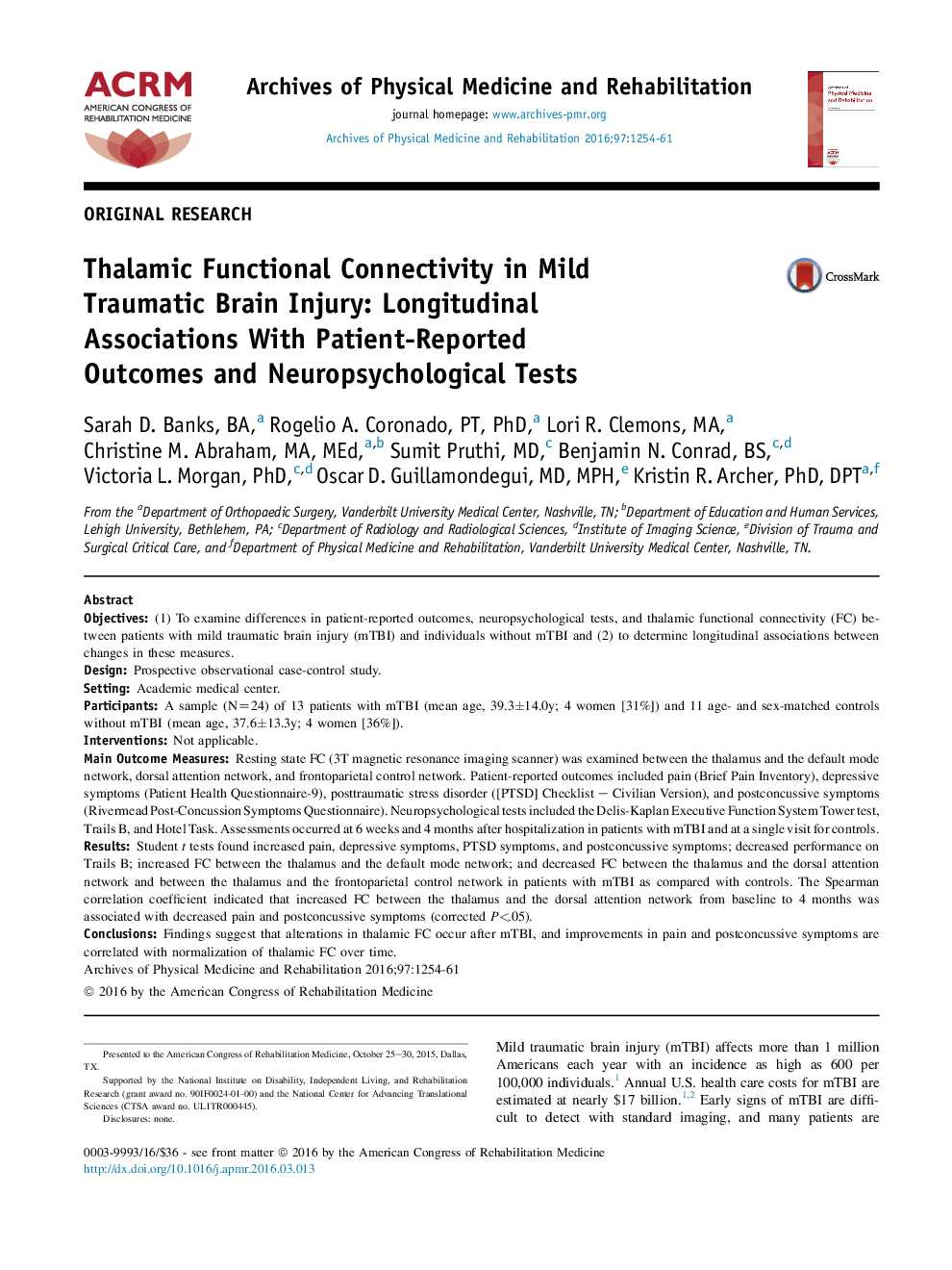| Article ID | Journal | Published Year | Pages | File Type |
|---|---|---|---|---|
| 3447859 | Archives of Physical Medicine and Rehabilitation | 2016 | 8 Pages |
Objectives(1) To examine differences in patient-reported outcomes, neuropsychological tests, and thalamic functional connectivity (FC) between patients with mild traumatic brain injury (mTBI) and individuals without mTBI and (2) to determine longitudinal associations between changes in these measures.DesignProspective observational case-control study.SettingAcademic medical center.ParticipantsA sample (N=24) of 13 patients with mTBI (mean age, 39.3±14.0y; 4 women [31%]) and 11 age- and sex-matched controls without mTBI (mean age, 37.6±13.3y; 4 women [36%]).InterventionsNot applicable.Main Outcome MeasuresResting state FC (3T magnetic resonance imaging scanner) was examined between the thalamus and the default mode network, dorsal attention network, and frontoparietal control network. Patient-reported outcomes included pain (Brief Pain Inventory), depressive symptoms (Patient Health Questionnaire-9), posttraumatic stress disorder ([PTSD] Checklist – Civilian Version), and postconcussive symptoms (Rivermead Post-Concussion Symptoms Questionnaire). Neuropsychological tests included the Delis-Kaplan Executive Function System Tower test, Trails B, and Hotel Task. Assessments occurred at 6 weeks and 4 months after hospitalization in patients with mTBI and at a single visit for controls.ResultsStudent t tests found increased pain, depressive symptoms, PTSD symptoms, and postconcussive symptoms; decreased performance on Trails B; increased FC between the thalamus and the default mode network; and decreased FC between the thalamus and the dorsal attention network and between the thalamus and the frontoparietal control network in patients with mTBI as compared with controls. The Spearman correlation coefficient indicated that increased FC between the thalamus and the dorsal attention network from baseline to 4 months was associated with decreased pain and postconcussive symptoms (corrected P<.05).ConclusionsFindings suggest that alterations in thalamic FC occur after mTBI, and improvements in pain and postconcussive symptoms are correlated with normalization of thalamic FC over time.
